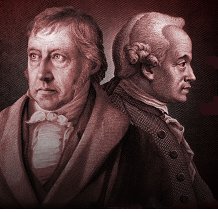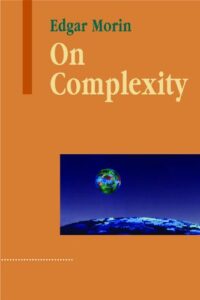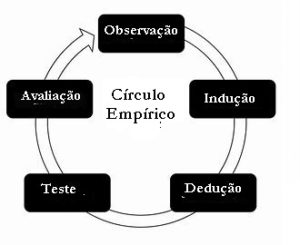
Arquivo para a ‘Information ethics’ Categoria
Ethics and religion.
Ethics and religion have always been related in history, modernity has separated them.
has separated them.
Hegel (1770-1831) despite the criticism of the Kantian model, in an attempt to build a teleological morality he created the “state morality”, which from his work ‘Principles of Philosophy of Law’ goes on to determine how the institutions that mediate it the life of the subjects referring to it as: a person in the abstract (the individual) as is typical of idealism; a moral subject and not a moral society as subjects including the moral state, and thus having an ethical citizen.
For this, Hegel describes a modern state that provides the full realization of the individual’s freedom. For him, each item of this triad (State, individual, Society) can be analyzed separately, but they are products of iterations, which are developed to arrive at the subsequent one.
In the beginning, in §4, Hegel tries to introduce free will as a starting point of law and as a motto for the development of the work, as it is in all idealistic culture about freedom:
“The domain of law is the spirit in general; there, its own base, its starting point is in free will, in such a way that freedom constitutes its substance and its destiny and that the system of law is the empire of realized freedom, the world of the spirit produced as a second nature from itself. ” (Hegel, 1997)
What he calls “realized freedom” will be done through a state conceived by an abstract right, the morality and an ethic that refer to it.
Ethicity was defined by Hegel as: “… the idea of freedom while living well, that in its consciousness it has its knowledge and its will and that, through the action of this conscience, it has its reality.” (Hegel, 1997), this is idealism is the conscience that determines reality.
As the individual has an institutionalized freedom, abstract law is the supposed freedom of free will that is determined in the face of things, classic idealistic division between subjects and objects, between objectivity and subjectivity, so to take possession, become owner, make contracts a knowing subject is created, aware of his rights, not admitting himself, but the ignorance of the current laws and thus of the conscience that each person has before objects, everything is established and guided by the state, by its ethics.
Here, there is a central aspect of our development, because it is in the State that the individual finds the possibilities of the common good to be realized, because in the particular will of each one desires the common good, it will be what makes the citizen a truly free being, that it is nothing but arbitrary interests enshrined by the State.
The moral crisis of institutions (and the state) is due to the construction of an abstract individual, of nations and not of peoples, they are not subjects, what happens is according to moral rules pre-established by interests, but whose ethics are questioned.
In a more recent time, based on studies by Husserl, after Heidegger, and recently by Paul Ricoeur and Emmanuel Lévinas, the ontological ethics is made from the Other.
Paul Ricoeur was influenced and maintained a dialogical attitude with Mounier, Marcel, and many others, maintaining a dialogical attitude with which he maintained a personal relationship.
Looking at aspects of the person (of the Other) of nature here, dialogue with religion is possible.
HEGEL, G. W. F. (1997) Princípios da Filosofia do Direito. Tradução: Orlando Vitorino. SP, Brazil: Martins Fontes. 1ª edição.
What do we mean by moral today
Almost every rational and elaborated basis on morality is based on an idealistic theory, which belongs to both rational thinking to Hegel and Kant, but in both there is already a criticism of pure and empirical rationalism, so what kind of morality is this socially proclaimed.
on an idealistic theory, which belongs to both rational thinking to Hegel and Kant, but in both there is already a criticism of pure and empirical rationalism, so what kind of morality is this socially proclaimed.
It cannot be said that it is positivist, nor communal, nor at the other end something merely platonic, the fact that both insisted on distinguishing the approach of practical philosophy both in Kant and in Hegel, where they are distinguished then.
Both set out to undermine the skeptic’s doubts about the possibility of objective judgments and practical requirements; both, moreover, reject positivist derivations of the law, exclusively empiricist descriptions of human behavior and intuitionist forms of justification.
Furthermore, the two philosophers seem to share the same conception of the conditions of human freedom. For both Hegel and Kant, a theory of morality and political rights devoted to promoting the cause of freedom must demand more than just the absence of obstacles to the satisfaction of our animal passions, it must be endowed with a certain rationality (idealism).
For Hegel, as well as for Kant, freedom requires, in addition, respect for the ends that we have as rational natures.
We achieve this type of freedom when our actions are motivated by the law of reason and when the social norms that restrict us are norms that we can rationally endorse.
The difference with Hegel’s system is that it overcomes a certain subjectivity of Kant’s “individual” model, but submits morality to some norm, in general, that which is established by the State, the problem of both is the relativization of the moral question, now trapped to the individual, now attached to the State, ignoring the Being.
Between ethics and morals
The great difference between ethics and morals is in the etymological root of the word, while the first derives from the Greek word êthos, which means “character” in some way but linked to the meaning of the polis with which the Greeks were concerned, the second derives from Latin word moralis, which is in a way also “abode” of Being, which the Greeks reflected, but distinctly.
etymological root of the word, while the first derives from the Greek word êthos, which means “character” in some way but linked to the meaning of the polis with which the Greeks were concerned, the second derives from Latin word moralis, which is in a way also “abode” of Being, which the Greeks reflected, but distinctly.
By unveiling (a word that Heidegger’s phenomenology favors) forgetting Being, it means that its “home”, its Dasein is hidden and forgotten by contemporary philosophy, so what is called morality has become almost synonymous with ethics, but not the It’s.
This field in contemporary philosophy is dedicated to understanding human actions (seeing them as moral actions) and this according to a temporal code may be right or wrong, so there is no timeless definition of morality and it becomes similar to the ethical code , the one defined by a moment in human history.
So morality is constantly changing, and ethics is what is established temporarily by some form of consensus, in general, established by state laws, which are also changeable.
There is therefore no discussion of principles and values that are fundamental, the right to life for example, which should be a fundamental value also becomes questionable, in the case of euthanasia and abortion, even death from some type of homicide can be “cool” and it is not.
Nothing justifies an arbitrary end of human life, all human life must be spared and preserved from temporal values, so also the discussion of death in a pandemic, which has a natural cause, can and must be analyzed in the case of social or personal neglect or negligence. .
The discussion of morals as a set of habits and customs of society, without being linked to principles is dangerous and can create rules and laws, which are the establishment of an ethics, which can transgress basic rights: life, human dignity and limits healthy social coexistence.
The philosopher Theodor Adorno defends this view in his book “Minima Moralia” (London: Verso. 1978) and also Peter Sloterdijk will oppose the absolute imperative (not to hinder progress and human action in the sense of creating a more solidary society) to the categorical imperative ( which is an individual’s moral ethical attitude) established by Kant.
In her book “The banality of evil”, Hanna Arendt warned about the concern with what she called “the activities of the life of the spirit”, related to action, ethics and politics, which took a consistent form in the judgment of the Nazi Adolf Eichmann in Jerusalem, a city that has not only the Judeo-Christian-Islamic symbolism of the great Abramic root, all descend and recognize the symbolism of Abraham as a result of their beliefs, but also a moral code
Friends and not servants
Friendship is a link that allows for reciprocity, says Byung Chul  Han in his book No swarm: Perspectives of the digital: “Power is an asymmetrical relationship. It establishes a hierarchical relationship. The power of communication is not dialogical. Unlike power, respect is NOT necessarily an asymmetric relationship. In fact, one often feels respect for exemplary people or superiors, but “reciprocal” respect, which is based on a symmetrical relationship of recognition, is fundamentally possible. ”
Han in his book No swarm: Perspectives of the digital: “Power is an asymmetrical relationship. It establishes a hierarchical relationship. The power of communication is not dialogical. Unlike power, respect is NOT necessarily an asymmetric relationship. In fact, one often feels respect for exemplary people or superiors, but “reciprocal” respect, which is based on a symmetrical relationship of recognition, is fundamentally possible. ”
This relationship means that we may or may not be in reciprocity, and we may or may not be in healthy relationships of friendship, affectivity and love (without a sense of agape), it does not mean that other relationships do not exist, for example , civil authority, social or religious for those who should really be respected as “authority” and not by imposition or fear, this case is justified only when there is a clear intention to violate social rights and duties.
In an authoritarian society the only respect is hierarchical, moral rules are forgotten, ethics only serves the logic of power and mutual respect is confused with total “freedom”.
It is not possible to go straight to the plane of love without going through some individual or reciprocal empathy that is the most desirable, even though when the relationship is asymmetrical, someone who has respect manages to remain in some way in an empathic way, even if there are acceptable limits, unless violence, for example.
In the biblical passage that the Master explains to the disciples what kind of love they should have, that love “as I loved you” (John 15:12), he adds: “I no longer call you servants, because the servant does not know what your lord. I call you friends, because I let you know everything I heard from my Father ”(Jn 15.15), this implies a relationship of symmetry and reciprocity as indicated above.
Jesus shows this by washing his feet (photo), but his friendship was over the limit: he gave his life for his friends.
It is also a good harmony of friendship, nobody has more friendship (or love) than the one who gives his life for his friends.
The relationship between friendship and love
Philia translated from greek, romanized becomes filia, in Portuguese son is “filho”, the same root of affiliation, where the a here is no longer a negation of inclusion, in the sense of belonging, affiliated with an institution, for example.
son is “filho”, the same root of affiliation, where the a here is no longer a negation of inclusion, in the sense of belonging, affiliated with an institution, for example.
In this Greek root fit both love and friendship, philo-sophia, love or friendship to wisdom, however love can also be (we have already made a post) like the eros or agape friendship, which in this case surpasses friendship.
Friendship can grow and become an agapic love, that is, capable of creating trust and above any interest, in which case friendship and love complement and expand.
In human, cultural and spiritual terms it is what favors a person’s good performance and mental health, so the distrust and enmity that can lead to hatred is the cause of many wars, because the economic, political or social interest without real ties it is nothing else.
There is no way to break a spiral of hatred when it grows, many wars and totalitarian regimes are proof of this, and the root is in every social cell where friendship and love have ceased to exist.
On the other hand, when these bonds grow and spread in a network, everything becomes healthy and there is a virtuous cycle where the best human and social values appear: solidarity, fraternity and what we call agapic love, which goes beyond any interest, it is an “amisticia” in ancien roman.
The Roman thinker Cícero has a text with exactly this name (Amisticia) and says in the text: “This is the first precept of friendship: ask friends only what is honest, and do for them only what is honest”, so this is the origin of a society that aims to be happy and peaceful.
Amisticia *Friendship in latin

It comes from the Latin that comes from the word and means generosity, closeness, although there was a Greek graduation and we put its meanings in the previous post, in fact it is related in that case to an affection, so-so interested and here coming from Latin, it means a choice.
The idea of proximity can unite and synthesize the two meanings, although today there is much talk of the relational being, the proximal being (the word does not exist) is superior to the relationship and in times of networks (it should be of media and not network, which is relationship) this relationship does not mean having proximity, so it is a restricted definition, it can have a relationship but outside of it.
Something positive can be removed from each aspect, being in a relationship is better than indifference, which is the absence of it, while closeness means the possibility of a friendship with deeper ties and this should include a form of Love superior to interest, to simple affection. or the simple relationship.
Consciously or not, it is this form of relationship that every human being seeks, most of the time in the opposite way, incorrect or without depth.
What form of friendship is this sought by philosophers, poets, mystics or religious, where is it? They ask, did those who say they found it found it? This has to do with the truth
Review life and re-educate to live
Part of the world economic crisis, this is Morin’s analysis is beyond economic, moral and ethical, in his sixth book on the Method of complexity, he develops the anthropological, historical and philosophical analysis of the problem, explaining that it starts from a concept inspired by Kant.
is beyond economic, moral and ethical, in his sixth book on the Method of complexity, he develops the anthropological, historical and philosophical analysis of the problem, explaining that it starts from a concept inspired by Kant.
Here ethics is defined as a self-imposed moral requirement, instead of imperatives arising from practical reason, in Morin’s ethics based on complexity, it comes from three sources: one internal, analogous to our conscience, the other simulated and oriented external by cultures, beliefs and norms pre-established in the community, and from previous sources that are the very organization of living beings and transmitted genetically.
His ethics thus presents an ethics that requires reflection on our moral, social and values choices that we bring to our daily lives, here the civilizational crisis is serious.
However, Kantian ethics favored a self-centered, egocentric ethics, according to my interests and my will, ignoring that it should share with others, and this means that we must also orient ourselves towards a vision that is sensitive to society as a whole and those without a voice.
In times of a pandemic, we were “forced” for reasons of public health, but also for education, to limit our movements, to maintain safe social isolation, and to look at each person and feel responsible for him, is this what all do
This apparent limitation of freedom is in fact one that should already be incorporated into our social ethics, without a consistent education for the practice of fraternity and a careful and sensitive look at the other, we can fall into a social vacuum and feed the already present civilization crisis. .
It is necessary to go through a long path of personal reflection and be willing to change habits and attitudes to help society as a whole to emerge from a crisis that is not only health but also social.
Idealism and the wide door of misconceptions
At the same time discovered as quantum physics, holography, and a new  worldview of the universe emerge, there are those who believe that the earth is flat and that we were never the moon. These are too many specific problems to be dealt with, but philosophy in general contemporary rather than neoliberal, this is its pragmatic economic aspect.
worldview of the universe emerge, there are those who believe that the earth is flat and that we were never the moon. These are too many specific problems to be dealt with, but philosophy in general contemporary rather than neoliberal, this is its pragmatic economic aspect.
It is idealistic and even philosopher-youtubers who discourse on philosophy follow it. Kant is complex, but his central point is the dichotomy between subject and object, as they cannot be separated, at least in terms of theory of knowledge, he created the analytical and synthetic judgments. Who is cured the disease or sick, for Kant it is the disease.
The analytic judgment is that the predicate is within the subject, and so it specifies its logic, and this logic comes from a physical-mathematical view of knowledge in modernity. It exemplifies using geometric figures such as the triangle and the square, of course it has four sides, but this is not a deduction but a tautological, circular definitions.
The synthetic judgment, on the other hand, cannot be contained in the subject, so it adds reasoning as something completely new, that is, the novelty is the predicate.
It is very simplified, but essentially develops a logic where Being and Entity are confusing and dismantles the possibility of an ontology, even if it is partial, and imagined with this throwing away all the “superstitions”, the famous “Sapere audi”, dare to know.
As reason alone was not enough, it was necessary to introduce the idea of empiricism, which came from David Hume’s arguments (1711-1776, so judgments may a priori, which already exist in the subject, and a posteriori, experimentally acquired.
Schlick (1882-1936), who founded the Vienna Circle neologicist school, criticized the idealistic basis of a priori knowledge, claiming that since statements have a logical truth, they are neither analytical nor synthetic as they are. Kant argued because it was paradoxical; and that if the truth depends on the factual content, the statements are therefore a posteriori and not a priori, since the facts must happen, Schlick was assassinated by Nazism.
In the circle of Vienna were present Kurt Godel, Karl Popper, Hans Kelsen and others.
The same proposition can be known by cognitive agents both a priori and a posteriori, using the same example as Kant, a creation only knows that the square has four sides after learning to count, while for an adult it seems “inductive.”
The video is a short discussion about idealism of Kant to Hegel:
It’s time to change of way
It is not my proposal, but the name of the last book by Edgar Morin (Editor Bertrand do Brasil, 2020), the almost centenary French philosopher shows the lessons of the coronavirus that we resisted in learning, it is also very similar to the name of Peter Sloterdijk’s book : You have to change your life (publisher Relógio d´Água, 2018) this well before the coronavirus.
Morin (Editor Bertrand do Brasil, 2020), the almost centenary French philosopher shows the lessons of the coronavirus that we resisted in learning, it is also very similar to the name of Peter Sloterdijk’s book : You have to change your life (publisher Relógio d´Água, 2018) this well before the coronavirus.
Before moving on to some of Morin’s lessons, I want to say that we ALL need to change our lives, the planet has run out, words have run out, polarizing politics runs out, and unfortunately sweet words like “fraternity”, “solidarity”, “compassion” ”And so many others seem to be only the will of some that others change, without, however, that each one changes himself first.
The preamble is a historical retrospective from the Spanish flu to May 68 and the current ecological crisis, the lessons from the coronavirus in chapter 1 I comment on at the end.
I begin at the end to affirm that Morin, who also shares values of fraternity, of planetary citizenship, of overcoming inequalities, etc., has in his book a very clear proposal, after demonstrating that the crisis is prior to the coronavirus that only worsened it , on page 4 sentence “… there are two inseparable requirements for political renewal: to leave neoliberalism, to reform the state” (page 46), which will provide the means in chapter 3.
This is actually your second point in the cap. 2 Post-corona challenges, the challenge of the political crisis, of the nine challenges it points to in current crises: the existential challenge, also pointed out in Pope Francis’ Fratelli Tutti Encyclical, the challenges of crises: globalization, democracy, digital, ecological protection, the economic crisis, uncertainties and the danger of a major setback (pages 44 to 53).
The 15 lessons from the coronavirus: about our existence, isolation shows us how those who “did not have access to the superfluous and the frivolous and deserve to reach the stage where we have the superfluous” live (page 23), on the condition recalls the Meadows report, which pointed to the limits of growth, the lesson about the uncertainty of our life, the lesson of our relationship with death, the lesson about our civilization (life turned outward, without inner life, the life of shopping malls and happy hours), the awakening of solidarity, inequality and social isolation, the diversity of situations and the management of the epidemic, the nature of a crisis, the 9 initial lessons.
The lesson about science and medicine, do we understand “that science is not a repertoire of absolute truths (unlike religion” (page 33), the crisis of intelligence, which he wisely divides into “invisible complexities” the way of knowledge “of human realities (growth rate, GDP, opinion polls, etc.” (page 35), point 2. is the ecology of action, it warns that action can “go in the opposite direction to what is expected and return like a boomerang to the head of the one who decided it” (page 35), how many actions and speeches fell in this ditch.
The twelfth lesson is the inefficiency of the state, which, in addition to neoliberal politics, yields “to pressures and interests that paralyze all reforms” (page 38), while polarization deepens.
The thirteenth lesson is national relocation and dependence, and regrets “that the national problem is so poorly formulated and always reduced to the opposition between sovereignty and globalization” (page 39), note the speeches that polarize and do not leave this circle vicious.
The fourteenth lesson is the crisis in Europe, I remember Sloterdijk’s book “If Europe woke up”, and Morin opens the wound: “on the shock of the epidemic, the European Union broke into national fragments” (page 40) .
The fifteenth lesson is the planet in crisis, quotes Prof. Thomas Michiels, biologist and specialists in virus transmission: “There is no doubt that globalization influences epidemics and favors the spread of the virus. When observing the evolution of past epidemics, there are notable examples in which it is noted that epidemics follow railways and human displacements. There is no doubt, the circulation of individuals aggravates the epidemic ”(page 41).
MORIN, E. (2020) É hora de mudarmos de via: lições do coronavírus, transl. Ivone Castilho Benedetti, collaboration Sabah Abouessalam. Rio de Janeiro, BR: Bertrand do Brasil.
Urgent: change thinking and teach to live
When we propose a model that is not that of the world of life, Husserl made a philosophy of it, his Lebenswelt, Habermas made it a sociology, Heidegger and Gadamer incorporate it in his thoughts, but the end that is life if not learning. But we didn´t learning from the pandemic.
philosophy of it, his Lebenswelt, Habermas made it a sociology, Heidegger and Gadamer incorporate it in his thoughts, but the end that is life if not learning. But we didn´t learning from the pandemic.
The central problem of seeking a “clearing” is that we create models too far from life, from its defense including nature, dignity and living itself, we are in a Yellow September, whose theme is none other than to say that it is worthwhile. It is worth living.
thought”. We will have a clearing, but it will not last long, and we could start a big change now, then there may not be time.
Clinging to already outdated methods and models, logicists and neopositivists, it is not pointed out “the nature of knowledge, which itself contains the risk of error and illusion” (MORIN, 2015, p. 16).
The great complexity theorist proposes, first of all, a return to philosophy (in the sense of primary thinking) in its Socratic condition of dialogue, Aristotelian (in the sense among others, of the organization of information), Platonic (questioning of appearances), and even pre-Socratic (questioning the world, inserting knowledge in modern cosmology), finally cannot teach life without knowing that it has dilemmas, errors and options.
Morin, who could boast of wisdom by age, by intense intellectual activity, from the pedestal of those full of certainties, no doubt or misconceptions that we see parading through the gyms and public stands of devouring and unquestioning media.
Morin seeks to “conceive the instruments of a thought that is pertinent because it is complex” (Morin, 2015, p. 23), and we see the barbarism of dogma and little elaborated certainties.
Ready-made phrases, self-help manuals, (mainly economic) laissez-faire, rudeness, and ideological hysteria deepen today’s cultural, humanitarian, and social crisis.
It scares me that book readers are so sure with so little thought, in fact criticism of thought grows and the praise of ignorance seems to win any argument.
Morin encourages us and brings us to a still visible and possible future, his lecture at the Frontier of Thought (2016) (Conference in Brazil) is a hope and a deepening that sheds new light.
MORIN, Edgar: Ensinar a viver: manifesto para mudar a educação. Trad. Edgard de Assis Carvalho e Mariza Perassi Bosco. Porto Alegre: Sulina, 2015

